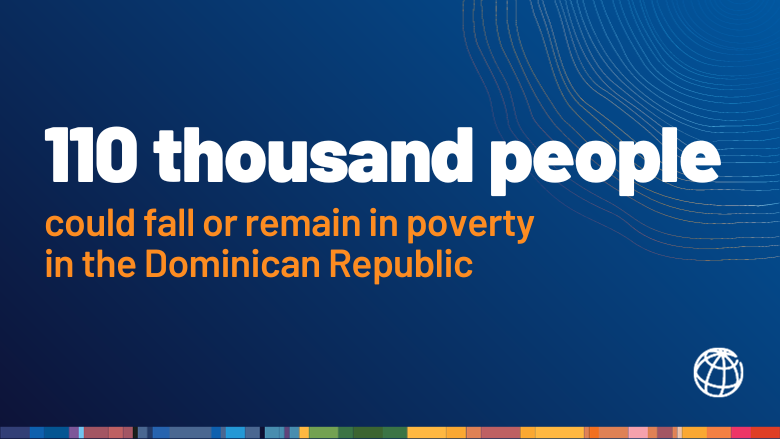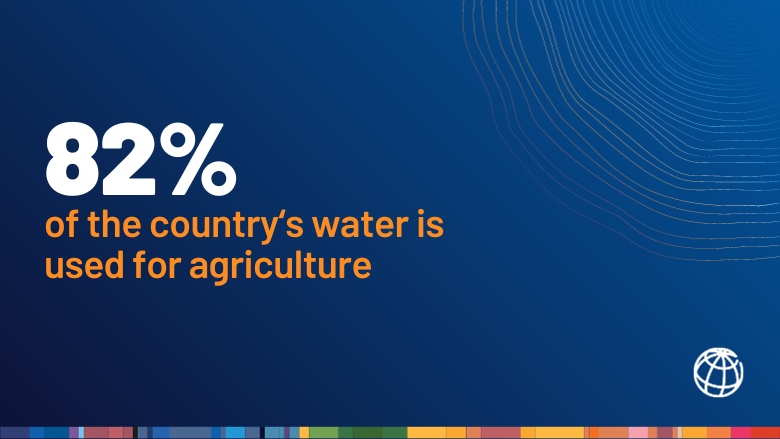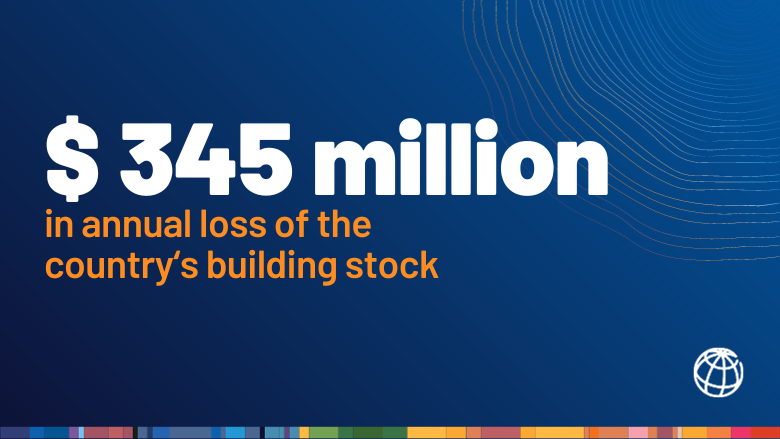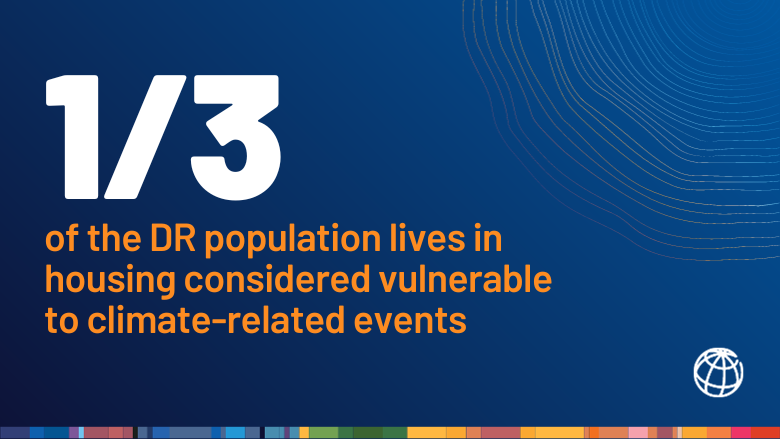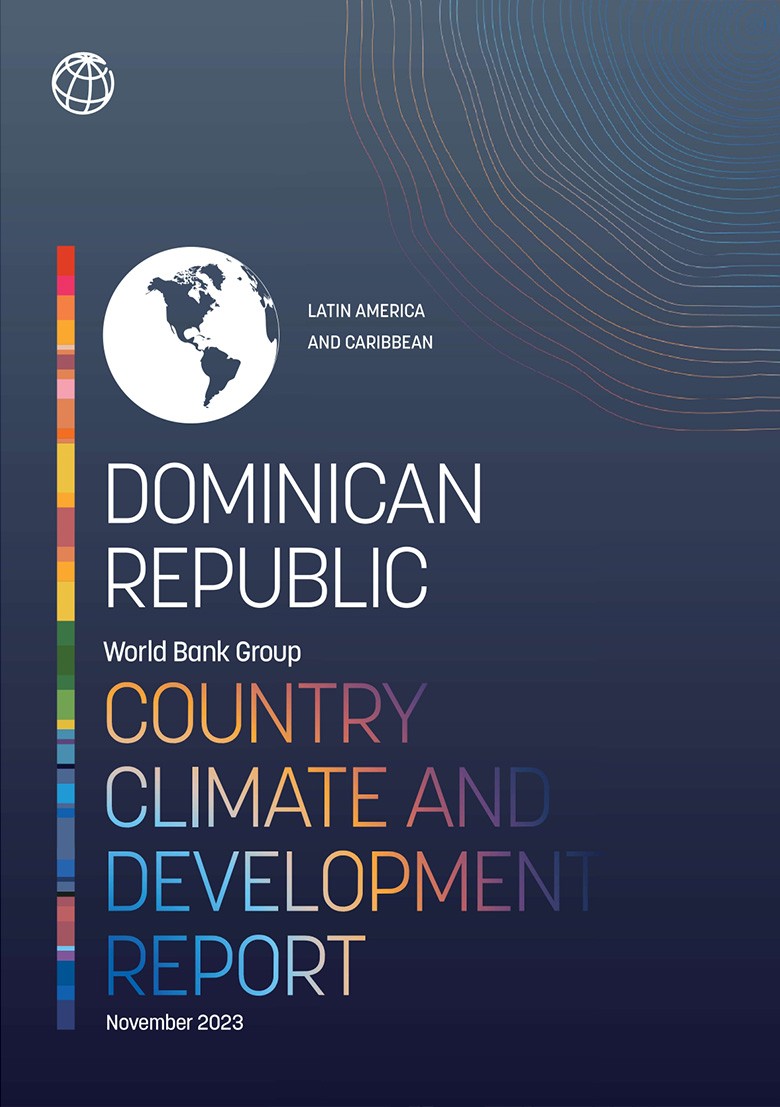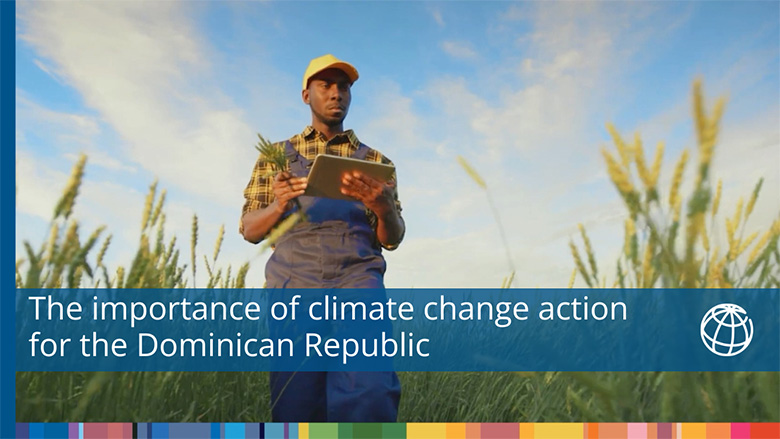The Dominican Republic is highly vulnerable to climate change, including to extreme natural events and slow-onset changes, such as rising temperatures or forest degradation, which impact important economic sectors and society, especially the poor and vulnerable populations.
Although their contribution to global carbon emissions is relatively low, it continues to increase as the country relies heavily on fossil energy sources such as coal. Further reducing its emissions will generate considerable economic, social and environmental benefits, and will promote sustainability in key sectors such as energy, transport, agriculture and water.
Accelerating climate action will allow the country to reduce poverty and inequality, generate jobs, and contribute to more sustainable development, according to the latest World Bank Group's Country Climate and Development Report for the Dominican Republic.
Why is it important to accelerate climate action in the Dominican Republic?
- Natural hazards caused by climate change could increase, such as more frequent and intense tropical storms that could significantly impact the country and could jeopardize its development achievements.
- By 2050, climate change is expected to have a significant impact on people's health, infrastructure and natural ecosystems such as forests, coastal areas, and tourism.
- Crop yields could decline by up to 30 percent and poverty rates could increase. Additionally, the country could stop generating up to 17 percent of its potential GDP in a scenario with no climate change effects by 2050 due to climate-related economic losses caused by lower tourism demand, more tropical storms, and lower labor productivity due to heat stress.
The opportunities for a resilient and low-carbon development for the Dominican Republic
The World Bank Group's Dominican Republic Climate and Development Report highlights that the Dominican Republic can meet its climate and development goals together, benefiting both Dominicans and the economy, despite the estimated high investment needs for mitigation and adaptation.
The report further discusses that losses in fiscal accounts could be up to 19.7 percent of total government revenue by 2050 compared to a scenario in which climate change did not occur. On the other hand, timely adoption of measures to reduce direct damage caused by crop erosion, flooding, sea level rise and tropical storms could reduce potential macroeconomic impacts by up to 60 percent by 2050.
To accelerate its goal of net-zero emissions by 2050, the Dominican Republic will need to undertake even more ambitious mitigation and decarbonization efforts across all sectors of its economy. This includes implementing actions to reduce pollution, protect biodiversity, improve public health, and create green jobs in agriculture, energy and tourism.
The Report highlights how climate change presents an opportunity to improve competitiveness, employment and social protection by strengthening the productivity, flexibility and innovative capacity of the workforce.
Discover the report to learn about Dominican Republic' opportunities and potential for more inclusive and resilient development. Download it here.
